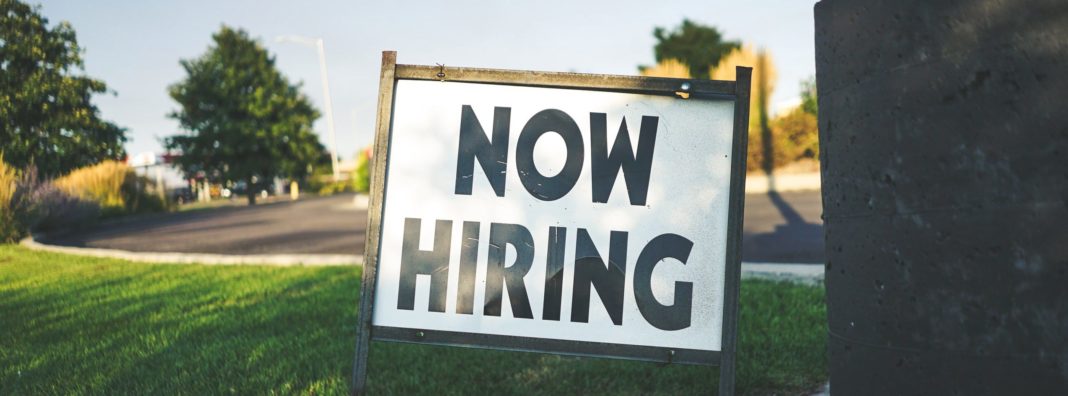
Senate Majority President Mitch McConnell hinted that the next COVID-19 aid package may come with strings attached. As he told reporters, “We’re not writing a check to send down to states to allow them to, in effect, finance mistakes they’ve made unrelated to the coronavirus.”
The specific area that McConnell pointed to was limiting legal liabilities surrounding COVID-19. However, there are a wealth of other possibilities to improve policies in the wake of the pandemic. A promising area relevant in all 50 states is occupational licensing reform.
Specifically, the next aid package should include requirements to reform occupational licensing as a condition for receiving federal funds. Licensing laws have outlived and outgrown their usefulness. Effective reforms can usher in a return to a thriving and vibrant economy. The best reform would be a state-level Fresh Start Initiative. The initiative, an idea from regulatory economists and based on current practice in some state agencies, creates a commission to evaluate regulations suspended during COVID-19. That commission then recommends permanent changes to state-level licensing regulations based on that evaluation.
Licensing restrictions hold huge portions of the US economy back, and do so at a scale that other labor market regulations can’t match. Although these economic losses have made the US less resilient in the face of COVID-19, their removal can power an economic recovery by removing barriers between the unemployed and employment.
Licensing reform can put Americans back to work
To encourage a fast economic recovery, further federal aid should be conditioned on the removal of licensing restrictions. Specifically, federal aid should require that states reconsider the occupations that they license and the requirements for receiving those licenses.
Occupational licensing sets rules for who can and cannot work in a licensed industry, such as nurses or electricians. Licensing rules vary from state to state, and states do not always license the same occupations. For example, Idaho does not license contractors. Both Kansas and New York do not license plumbers at the state level.
Obtaining a license generally includes education in the field, training, and a licensing fee paid to the state. In many licensed occupations, these are not inherently a problem. Surgeons, for example, make a strong case for licensing given the risks.
States have already made smart changes to licensing laws in the face of COVID-19. For example, states have dropped the requirement that workers be licensed in their states so that a nurse in Kentucky can now work in New York. These are smart policy changes that made sense before the onset of COVID-19 and should be maintained. Arizona in 2019, for example, became the first state to accept licenses from other states. Universal recognition makes it easier for workers to move between states, which can help power an economic recovery by allowing workers to move into areas where their skills are needed more easily.
Universal recognition, however, only helps already licensed workers. The wider and more important question is how to maintain the positive policy changes seen across the US during COVID-19. To that end, federal aid should be conditioned on the state’s adoption of Fresh Start Initiatives. Fresh Start Initiatives can break down the barriers that lock workers out of licensed fields.
Modeled after the Base Realignment and Closure (BRAC) commission’s process, Fresh Start Initiatives would:
- Create state-level commissions to study the rules that states revised or suspended because of COVID-19;
- Recommend reforms based on those rules; and
- Create a timetable for the reform or sunset of the regulations.
Approaches like the BRAC Commission’s have been proposed as an opportunity to ease difficult reforms in other policy areas, such as tax policy. The original Commission evaluated changes to military bases because of changes in geopolitical priorities. Once a base exists, it is difficult to change because its existence creates vested interests in its continued existence. Groups lobby to maintain a base as a way to provide economic benefits to a town or state rather than defense for the US as a whole. As one economist summarizes, an individual vote for BRAC is a “conspicuous vote in favor of cutting unnecessary military spending. But the commission itself decides which particular bases to close, allowing the member whose hometown base is closed to tell constituents that her hands were tied.” This aligns the individual legislator’s interests in reelection with a thorough and binding review.
Based on the lessons from the BRAC commission, regulatory economists developed Fresh Start Initiatives as a way to shrink the growth of rules like licensing to useful levels. Even though licensing has extensive economic costs across the entire economy, licensed individuals are better off because of them. That incentivizes licensed professionals to lobby for maintaining licensure even if it does not align with the public interest.
To illustrate how a Fresh Start Initiative might work, take a look at cosmetology licenses. The case for licensing cosmetology is that there are public health risks from dirty hair clippers or the use of dyes and other chemicals. A hypothetical Fresh Start Initiative might evaluate these risks and recommend an appropriate response, such as periodic health inspections like those that restaurants undergo in lieu of licensing. Or it could recommend that cosmetologists be required to pass a test about on-the-job safety knowledge, something equivalent to a food handler’s permit.
Some states already have similar processes, such as Colorado and Texas. Colorado’s Department of Regulatory Agencies (DORA) reviews existing and proposed regulations and summarizes the need for those regulations. DORA recommends the need for licensing or suggests alternative policies. Texas’s Sunset Advisory Commission operates a similar procedure, recommending the removal of licensing rules that do not serve the public interest.
Applying the Fresh Start Initiative would require state officials to buy-in through a vote for red tape reduction that is then binding based on the Fresh Start Initiative’s recommendations. This can be done in two ways. First, by making the recommendations effective when issued by the commission. Or the recommendations could become binding by requiring that the state legislature vote on enacting the reforms in an all-or-none form. If the whole body of reforms passes, then the commission dissolves or hibernates for a defined amount of time, perhaps three years, before reconvening to reevaluate the changes. If the whole body of reforms fails, then the commission issues another set of recommendations and returns those to the state legislature.
The case for occupational licensing reform
This Fresh Start Initiative is necessary given the growth in occupational licensing’s scope over the last 70 years. The true issue with licensing is not education or experience requirements. Instead, it is the seeping growth of licensing requirements where it is not needed or where its requirements extend beyond reason. Consider how licensing has grown from only around five percent of the labor force in the 1950s to about 20 percent of the workforce today.
Source: Data from multiple estimates compiled by Smith, Freeman, and Caldwell.
If anything, licensing’s prevalence should have fallen since the 1950s. The argument in favor of licensing relies on the fact that doctors know more than their patients. This information asymmetry makes it possible that some practitioners might take advantage of their customers. For example, by overcharging them for simple procedures. So licensing laws were created to protect consumers from charlatans and quacks.
Yet today information is readily available through online review platforms. Consumers can find out if someone is a high-quality professional before they ever seek them out. As economists from Harvard, MIT, Stanford, and Boston University show in a recent research paper, consumers prefer this review platform information to information about licenses.
Another way to think about the nationwide influence is to compare licensing to the minimum wage. Licensing affects many more people than the current minimum wage. In 2019, only 1.6 million workers were paid at or below the federal minimum wage. With about 160 million people working in the US labor force, that’s only one percent of all working Americans. That means about 20 times more workers are affected by occupational licensing laws
In part, licensing dwarfs the minimum wage debate because 29 states and some cities have their own minimum wage laws that are higher than the federal requirement. Though even if the federal minimum wage was $15 an hour–almost double the current level–it would still affect fewer American workers than licensing. According to a 2019 Congressional Budget Office (CBO) report, a $15 an hour wage would raise the wages of 17 million workers, which is only about 10 percent of the labor force. That is only half the 20 percent of workers affected by licensing laws.
One out of five workers is affected by licensing laws. Given its pervasiveness, reforming licensing can have sweeping economic benefits and reverse the economic costs found in research on licensing.
The economic costs of licensing
Occupational licensing creates real economic costs. Economists Morris Kleiner and Evgeny Vorotnikov estimated that the US economy would have two million more jobs without licensing. In addition to lost jobs, the national economy would be at least six billion dollars wealthier without licensing’s limits on businesses and consumers.
Those costs fall on many people, and some harder than others. For example, one reason that licensing harms the economy is because it bars workers from using their employable skills. Military families, in particular, have run into this problem.
Consider the case of Kim Lopez, a teacher who moved to Utah with her military husband. Military families like Kim’s often move from state to state. Because licensing rules vary, they must continually get re-licensed, again and again, to do the same job they did before moving. As Kim mused, each move means “additional testing, additional courses, all at a cost of time and money.”
Another reason for licensing’s economic costs is that it restricts the number of people working in licensed fields. This happens because licensing puts up barriers to working for would-be nurses, cosmetologists, and electricians. Research shows that fewer people enter licensed occupations than unlicensed ones. One study estimated that for every five licensed workers, there is a missing sixth because of licensing laws. Overall, that study found that there is a 17 to 27 percent decline in labor supply because of licensing.
That reduction represents fewer plumbers and electricians. In the midst of a public health crisis, it also means fewer nurses.
Fresh Starts for All
Both Colorado’s DORA and Texas’s Sunset Commission represent guides for state-level Fresh Start Initiatives. These Fresh Start Initiatives can capitalize on low-hanging fruit in promoting a fast return to economic prosperity as COVID-19 fades.
The economic costs of licensing motivated reforms well before COVID-19 became a national concern. In light of the pandemic, it has only become more important. Conditioning federal aid on state-level Fresh Start Initiatives will be an important step towards a lasting economic recovery that would expand job opportunities for millions of American workers.

